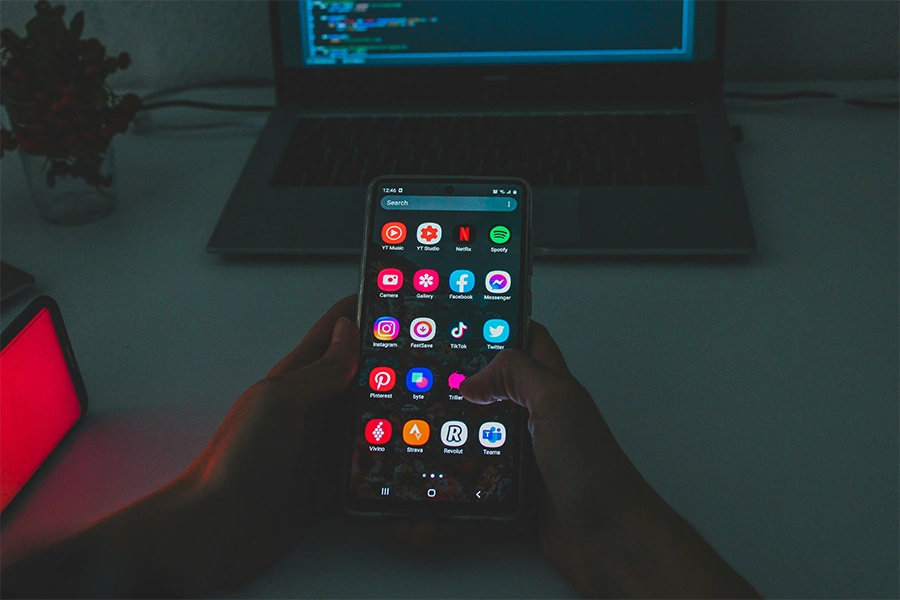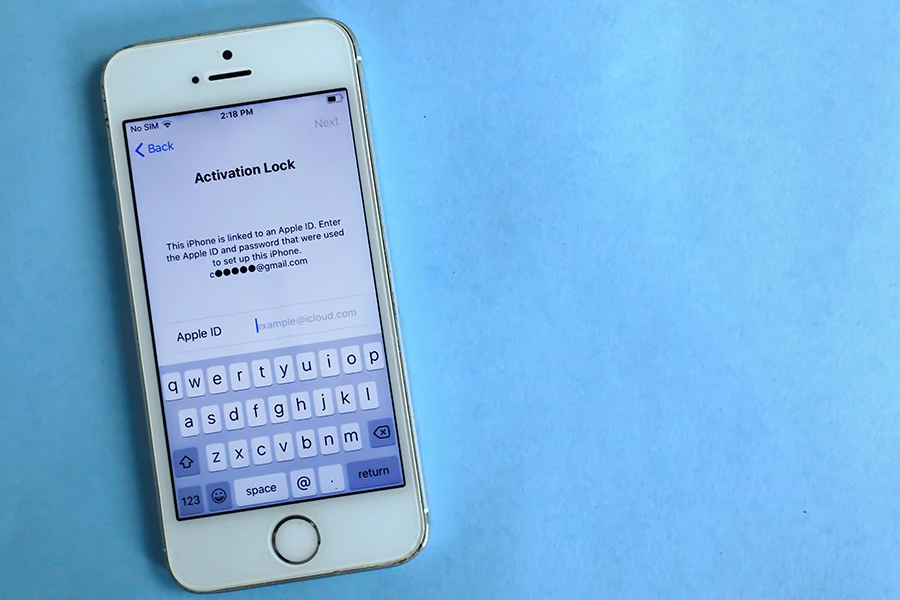Blockchain in mobile apps is emerging as one of the most promising advancements in modern technology. Today, most MNCs, growing startups, and other businesses are opting for blockchain and starting to implement it with their systems.
This tech sector is already revolutionizing finance, healthcare, and education, and now it is penetrating the mobile app development space, improving payments and security. The blockchain industry is expected to surpass $20 billion in revenue by 2024 and keep growing.
What is Blockchain Technology

Blockchain is a digital technology that records information securely, transparently, and unchangeably. It works like a chain of blocks, where each block contains a list of transactions and is linked to the one before it.
Instead of being stored in one place, the data is shared across many computers, making it nearly impossible to hack or alter. This technology is mainly used in cryptocurrencies like Bitcoin, but also helps in areas like supply chains, digital identity, and secure voting.
Benefits of using Blockchain in mobile apps
Most people have confusion when it comes to blockchain and cryptocurrency; they associate them with each other and sometimes use them interchangeably. Businesses all around the world have started to use blockchain technology in their businesses. For instance, mobile app development, investment firms, security architectures, and health insurance are some of the examples. The following are the benefits of blockchain for mobile apps.
Better Secure Systems
Blockchain is well known for its strong security and confidentiality. This allows the developers to add an outermost coating to their information, and assigning keys to consumers makes it almost impossible for anybody without a key to change user activity.
Moreover, blockchain maintains a duplicate of your information throughout the system. This makes it extremely difficult for a data breacher to steal your data. This allows mobile app developers to create a highly secure system within mobile apps that making blockchain a necessity for mobile apps.
Also read: The Importance of Mobile App Security and Best Practices
Transparent Data

Blockchain is widely recognized for its robust security and privacy features. It enables developers to add an extra protective layer to data and assign unique keys to users, making it nearly impossible for unauthorized individuals to alter any user activity.
In addition, blockchain stores copies of the data across the entire network, which significantly reduces the risk of data breaches or theft. This capability allows mobile app developers to build highly secure systems, making blockchain an essential component for modern mobile applications.
Secure Mobile Payments

Blockchain in mobile apps reduces the danger of data breaches to the mobile app development architecture as it allows businesses to store data and DNS records on a decentralized private platform. Nobody outside the network can join the network without an admin’s permission.
Also read: Business Should Prioritize Mobile Application Security
Unwavering Excellence
When it comes to data protection, blockchain technology can enhance the reliability of mobile apps due to its strong and trustworthy structure. Its architecture is designed to safeguard the entire system against failures or disruptions.
Blockchain ensures higher security by storing multiple copies of the same data across different blocks in a single network, making it more resilient and dependable.
Digital Identification
Top businesses and MNCs employ mobile app development companies to implement blockchain in their mobile apps. Top Insurance firms, banks are also investing in blockchain to create digital ID administration apps. Since government agencies rely on individuals’ digital identities.
Speed & Reliability
One of the key advantages of Distributed Ledger Technology (DLT) is that it removes the need for third-party intermediaries to carry out transactions. This leads to faster and more efficient trade settlements by simplifying the entire process. Reports suggest that blockchain-based transactions are up to ten times faster than those processed through traditional banking systems.
While conventional banks may take several days to complete a payment, blockchain transactions are typically finalized within minutes. Additionally, blockchain systems operate around the clock—24/7, drastically cutting down payment processing times.
Model of Advertising
With blockchain-powered mobile apps, users can earn in-app currency just for spending time on the platform. This “pay-for-attention” model benefits the advertising industry by rewarding users directly and cutting out middlemen or agents who would normally take a share of the revenue.
Frequently Asked Questions
Does blockchain work offline in mobile apps?
Blockchain typically requires an internet connection to sync data across the network. However, certain offline functionalities can be built and later synced when online.
Which platforms support blockchain-based mobile app development?
Popular platforms include Ethereum, Hyperledger, Solana, and Corda. Developers can also use mobile development frameworks like Flutter or React Native alongside blockchain APIs.
What are some real-world examples of blockchain in mobile apps?
Examples include crypto wallets (like Trust Wallet), decentralized finance (DeFi) apps, blockchain-based games, and supply chain tracking apps.
Conclusion
There are several ways blockchain is shaping the future of mobile app development. With its unmatched transparency, efficiency, and dependability, blockchain offers developers powerful tools to build more secure and trustworthy apps. As a result, the mobile app industry is poised to see significant improvements in both performance and user trust.
In the coming years, we can expect more apps to integrate blockchain features like decentralized data storage, secure in-app transactions, and user identity protection. This shift not only enhances app functionality but also opens new opportunities for innovation in various sectors. Including finance, healthcare, and e-commerce.








